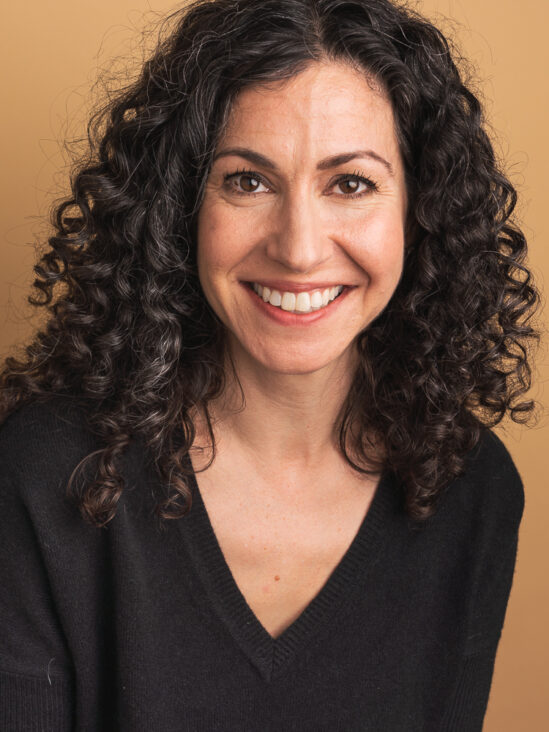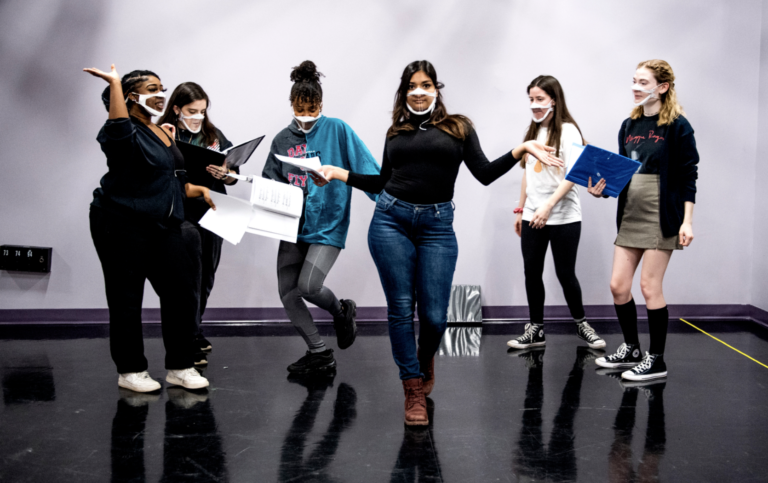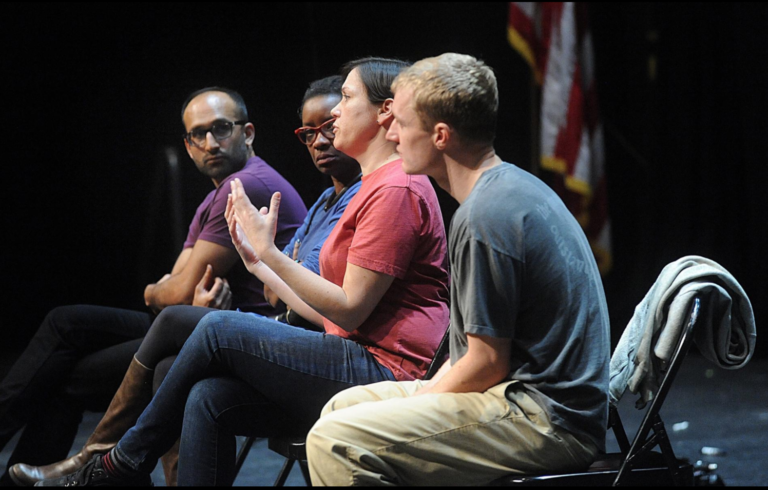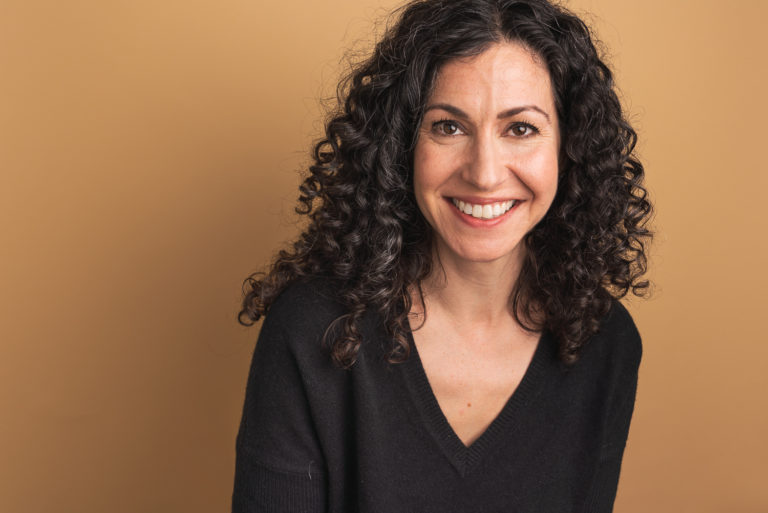Dani Snyder-Young is a scholar of applied theatre and contemporary US activist performance. She studies the ways socially engaged performance projects impact their audiences and their participants.
Her books include: Privileged Spectatorship: Theatrical Interventions in White Supremacy (2020, Northwestern University Press); Theatre of Good Intentions: Challenges and Hopes for Theatre and Social Change (2013, Palgrave Macmillan); and Impacting Theatre Audiences: Methods for Studying Change, co-edited with Matt Omasta (Routledge, 2022). She has published articles in Theatre Journal, TDR, Theatre Survey, Theatre Research International, Theatre Topics, RiDE: The Journal of Applied Theatre Research, Applied Theatre Researcher, Qualitative Inquiry, and Youth Theatre Journal.
Her forthcoming book, Sticking Stigma: Affect, Performance, and the Movement of Social Norms (under contract with Vanderbilt University Press), examines the cultural technologies of power artists and cultural producers employ to manipulate stigma and its resulting affects in performance projects oriented towards the alleviation of social inequalities. This includes performances explicitly and implicitly working to reduce stigma experienced by marginalized communities as well as performances working to stigmatize behaviors aligned with facets of oppressive hegemonic power.
Dani collaborates with colleagues in other disciplines to develop community-partnered projects examining how theater practices support human thriving in public health and public policy contexts. She was the Principal Investigator for the National Endowment for the Arts (NEA) funded project Theatre participation and arts-integrated peer leadership in substance addiction recovery processes (2020-22), undertaken in conjunction with Professor Alisa Lincoln of Northeastern’s Bouvé College of Health Sciences. This project examines how applied theatre and storytelling projects support participants in recovery from substance use disorder with their recovery processes.
She leads the Data Theatre Collaborative, whose Civic Data Theatre process reimagines what community meetings and data-informed democracies can include. In this process, community stakeholders collaborate with trained participatory theatre artists to examine, interpret, and create new information about a pressing local issue. Together, they translate quantitative data into stories, movements, feelings, and experiences that can be collectively examined by a broadly constituted group of community stakeholders. Artists then collaborate with community stakeholders to craft these materials into a publicly performed theatre piece that provides the groundwork for a facilitated community reflection and deliberation.
Dani’s artistic work as a dramaturg and director focuses on socially engaged and community-based performance. At Northeastern, she directs plays centering the voices and experiences of women, including The Wolves, How I Learned to Drive, and the ensemble-devised The Princess Saves Herself in This One. Dani began her artistic career in Boston in 1999, working locally with Boston TheatreWorks, Lyric Stage Company of Boston, New Repertory Theater, Boston Playwright’s Theater, Coyote Theater, Other Side Productions, Playwrights’ Platform, Peabody House Theatre Cooperative, and Shadowboxing Theatre Collaborative. Regionally, she has worked with Barrington Stage Company, Gloucester Stage, Hangar Theatre, and the Williamstown Theatre Festival. Her devised work with young people has been performed in New York at the Public Theatre and the HERE Arts Center, and she was a founding member of the Present Tense Theatre Company. Internationally, she has worked with Misery Loves Company of Prague, Czech Republic. Dani was an ensemble member of Halcyon Theatre in Chicago from 2013-2018 and is a member of Actor’s Equity Association.
Prior to joining the Northeastern faculty in 2017, Dani taught at Illinois Wesleyan University, New York University, and Pace University. She holds a BA from Wesleyan University and an MA and PhD from New York University.
Departments
Theatre
Education
- (PhD),New York University
- (MA),New York University
- (BA),Wesleyan University
Research Focus
Monographs:
⦁Privileged Spectatorship: Theatrical Interventions in White Supremacy. Evanston: Northwestern University Press, 2020.
⦁Theatre of Good Intentions: Hopes and Challenges for Theatre and Social Change. Basingstoke: Palgrave Macmillan, 2013. Paperback edition, 2016
Recent Publications:
⦁ “We’re all in this together: Digital performances and the performativity of socially distanced spectatorship.” Theatre Journal 74.1 (2022): 1-15.
⦁ “Procedurally authored performances of mindful practice: Theatre-for-one, audience labor and self-optimization.” TDR 66.2 (2022): 147-156.
⦁ “For an Ethic of Critical Generosity: Facilitating Productive Discomfort in Applied Theatre Praxis.” In K. Sadeghi-Yekta and M. Prendergast (eds) Applied Theatre: Ethics. London: Bloomsbury, 2022, 115-130.
⦁ “Community-based performances of harmonious diversity: Happy talk and utopian performativity in playback theatre.” Co-authored (1st author) with Maren Flessen[1]; Applied Theatre Research 9.1 (2021): 39-53.
⦁ “Recovery Capital and Collaborative Theatre Making: How actors in recovery from substance addiction value their participation in addiction prevention plays.” Co-authored (1st author) with Ashley R. Houston[2], Andy Short, Ana Bess Moyer Bell and Alisa Lincoln; RiDE; The Journal of Applied Theatre and Performance 27.1 (2022): 121-136.
⦁ “Ownership, Expertise, and Audience Research: Developing collaborative, artist-centric methods for studying reception,” Theatre Topics 30.1 (2020): 31-40.
⦁ “Studying the relationship between artistic intent and observable impact.” Performance Matters 5.2 (2019), 150-155.
⦁”No “Bullshit”: Rigor and Evaluation of Applied Theatre Projects.” In K. Freebody, M. Balfour, M. Finneran, and M. Anderson (eds) Applied Theatre: Understanding Change. Springer, 2018, 81-94.
⦁ “Despite artists’ intentions, emancipated spectatorship reinforces audience members’ existing attitudes and beliefs.” In S. Woodson & T. Underiner (Eds) Theatre, Performance and Theories of Change.(Palgrave Macmillan, 2018.)
⦁ “The Promise and Pitfalls of the Real”. Theatre Survey 57.3. August 2016
Professional Affiliations
⦁Association of Theatre in Higher Education
⦁American Society of Theatre Research
⦁Pedagogy and Theatre of the Oppressed
⦁Dani serves on the editorial board of Theatre Topics and the advisory board of Applied Theatre Research





